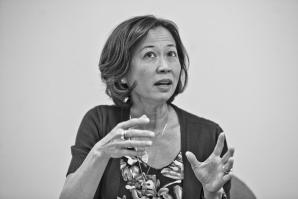Douglas Houston had spent 17 years in the U.S. Army when the time came for his second act. Houston, who is the eighth generation of his family to serve in the military and the great-great-great grandnephew of 19th-century soldier and Texas politician Sam Houston, was deployed to Operation Desert Storm and rose to the rank of captain before moving to his next career: working in the junior college system, where he became chancellor of the Yuba Community College District in 2011. “It was actually pretty comfortable for me to transition from one deeply morally purposed ethos to another,” Houston says.
Amid the ongoing COVID-19 pandemic and economic difficulties, more adults might follow Houston’s path, trading in a career in which they might have enjoyed many years of success to try something new, even in their middle to later years. In the Capital Region, educational paths are plentiful for those looking to make that transition.
Consider More Education
There are many options for those who want to pursue a second career. Some try consulting after retiring from jobs in business or the public sector. Some open brick-and-mortar businesses. Others finally try their hand at writing that long-thought-about novel. The sky’s the limit, so to speak, for middle-aged or older adults who have savings, a pension or even just an itch to try something different with their remaining working years.
“What we find is those folks often find themselves in our creative writing classes because they always wanted to write a great novel or … they enroll in some of our computer science classes because they want to establish their own blogs,” says Celia Esposito-Noy, president and superintendent of Solano Community College District. “Or they might enroll in our foreign language classes, Spanish or French in particular.”
Whatever the case, it can be a smart move for adults looking to launch a second career to consider more — or even a late first round of — higher education. “I think it’s critical that they consider going back for more education,” Sacramento State President Robert S. Nelsen says. “It is the skills that we need to move forward, so coming back and re-honing those skills or getting new skills is critical.”
More older adults seem to be heeding these types of messages. The Chronicle of Higher Education noted that for the fall of 2018, adults over the age of 40 comprised 8.7 percent of the 15.6 million college students, ranging from 5.8 percent in four-year public institutions to 28.6 percent in four-year for-profit schools. And the coronavirus pandemic hasn’t had much impact on enrollment for older students. “We have not seen more applications,” says Jenni Murphy, dean of the College of Continuing Education at Sacramento State. “But we have not seen a drop-off.”
“I think it’s critical that they consider going back for more education. It is the skills that we need to move forward, so coming back and re-honing those skills or getting new skills is critical.”
ROBERT S. NELSEN President, Sacramento State
Older students often use new educational opportunities as bridges to weather rough economic times and increase their skill set. Murphy says returning adult students often have different levels of persistence, commitment and focus. “It’s not an exploratory, maybe kind of figure-out-what-you-want-to-do-with-your-life (pursuit),” Murphy says. “It’s, ‘This is where I’m at. I want to earn more. I want to be in a profession that I love. I want to use my skills differently.’”
Some opt for elements of the traditional college experience. Esposito-Noy points to one man in his late 50s, a longtime contractor who hadn’t previously attended college, who enrolled at Solano Community College and played on the tennis team. “Frankly, he was as competitive as any of the youngsters,” Esposito-Noy says.
Many Options for More Study
One reason it might be easier to pursue a new career is that options to earn degrees or certificates are expanding beyond four-year institutions.
Pam Walker, a Sacramento-based educational consultant, helped the California Community Colleges system develop a pilot program at up to 15 schools for students to earn four-year degrees. Solano Community College is one of the pilot schools, offering a biomanufacturing bachelor’s degree program.
Walker says when the state initiated work for this program, which was signed into law in 2014, one of the most important parts was looking at individuals already working in chosen fields who needed something a little more. And that’s a group that might struggle to pay for bachelor’s degrees at traditional institutions, Walker says. “I saw many people over 35, 45, coming back to school to take those degrees so that they could move up,” Walker says.
At $46 a unit — with the California Promise Program waiving fees for first-time, full-time students of any age — the community college system might be the least expensive way to pursue a second career. “You can get the same skills and education and experience by doing the classes at community college,” says Esposito-Noy. “So I really recommend it.”
Brian King, chancellor of Los Rios Community College District, agrees. “Community colleges are just tailor-made to support students who are ready to make a change in their lives,” says King (a member of Comstock’s Editorial Advisory Board).
A variety of courses at junior colleges might appeal to older students, and King points to an associate degree in culinary work offered at two Los Rios colleges — American River College and Cosumnes River College. Amy Schulz, dean of Career, Continuing, and Technical Education at Sierra College in Rocklin, says her school’s IT security and data analytics programs attract “a lot of those second-act professionals.”
An associate or bachelor’s degree from a community college isn’t the only option, though. Murphy says those seeking a new career comprise about a quarter of people enrolled in certificate programs at Sacramento State, and the university is considering accelerating programs into boot camps that could start at nontraditional times in the academic world.
“People don’t lose their jobs, they don’t get laid off, we don’t have pandemics on a semester schedule,” Murphy says. “For us as an institution, we have to look at how can we continue to offer things that meet people where they’re at, not just with their needs but with their schedules as well.”
John Jackson, president of Rocklin-based William Jessup University, foresees more certificate programs as the economy continues to struggle. “I think you’re going to find a much more symbiotic relationship between the educational establishment and the corporate world in the years to come as the economy shifts rapidly,” Jackson says.
The movement toward certificates isn’t without concern for some. Su Jin Gatlin Jez, executive director of California Competes, a Bay Area educational-policy organization, says research from Georgetown University found that states that invested in short-term certifications tended to stifle their long-term economic growth.
“We hear from employers, from these billions of surveys that everybody does: They want critical thinking, they want communication. … They want comfort with ambiguity, all these sorts of things if you’re doing an eight-week training, you’re probably not getting that,” Jez says. Still, she says, certificates can be valuable for people who already have degrees.
Four-year schools are eager for more older students. A program at Sacramento State, ProjectAttain, is aimed at helping students complete their degrees. The university launched this effort in 2018, saying in a news release that it would “bring together stakeholders from a variety of industries to promote educational attainment.”
“There are literally 60,000 people within 15 credits of graduating in this area,” Nelsen says.
It’s Never Too Late
It sometimes might not be easy for older students to return to school. “We see a lot of people that carry shame, that feel like failures that they didn’t finish the first time, that they have some level of impostor syndrome,” Murphy says. “We also find that they might have student debt.”
There has been some movement in California to look at educational costs differently, Murphy says, including working with companies to help them reevaluate the ways they reimburse their employees for education expenses.
Despite the difficulties older adults might face in their pursuit of more education to qualify for a second career, Murphy says, “It’s never too late to be what you always wanted to be. It’s never too late to change directions. And it’s never too late to make yourself better in any kind of intellectual or academic way.” There are practical reasons to return to college as well, such as the fact that Americans have longer lifespans than in the past. “Your second act may last as long as your first act in many cases,” Esposito-Noy says.
Middle-aged to older adults ready for a second career act shouldn’t have anything to fear, says Nelsen. Before coming to Sacramento State, Nelsen taught for 34 years, including as professor in a doctoral program at University of Texas at Dallas. “Some of my best students were in their 50s and 60s,” Nelsen says. “I had one who was in his 80s.”
–
Stay up to date on the effects of the coronavirus on people and business in the Capital Region: Subscribe to the Comstock’s newsletter today.
Recommended For You

The Pandemic Has Shown That Virtual Learning Can Be Quality Learning
In our series, The Big Fix, industry experts explore how the region can rebound from the coronavirus shutdown
Sacramento State will look very different this fall, when only 7 percent of courses will be held in-person, because of COVID-19 and social distancing.

Education Can Fuel Economic Growth
Comstock’s president and publisher considers the role colleges, universities and other educational programs can play in the economic recovery.

The COVID-19 Pandemic Has Made the Education Process More Challenging
Comstock’s president and publisher considers the difficulty of starting a new school year in the midst of the pandemic.

Measuring Up
Ting Sun, executive director of Natomas Charter School, on the role of charter schools in public education
When it comes to charter schools, people seem to either love them or hate them. We sat down with Ting Sun, executive director of the Natomas Charter School and a member of the California State Board of Education, to talk about the role charter schools play in modern education.




